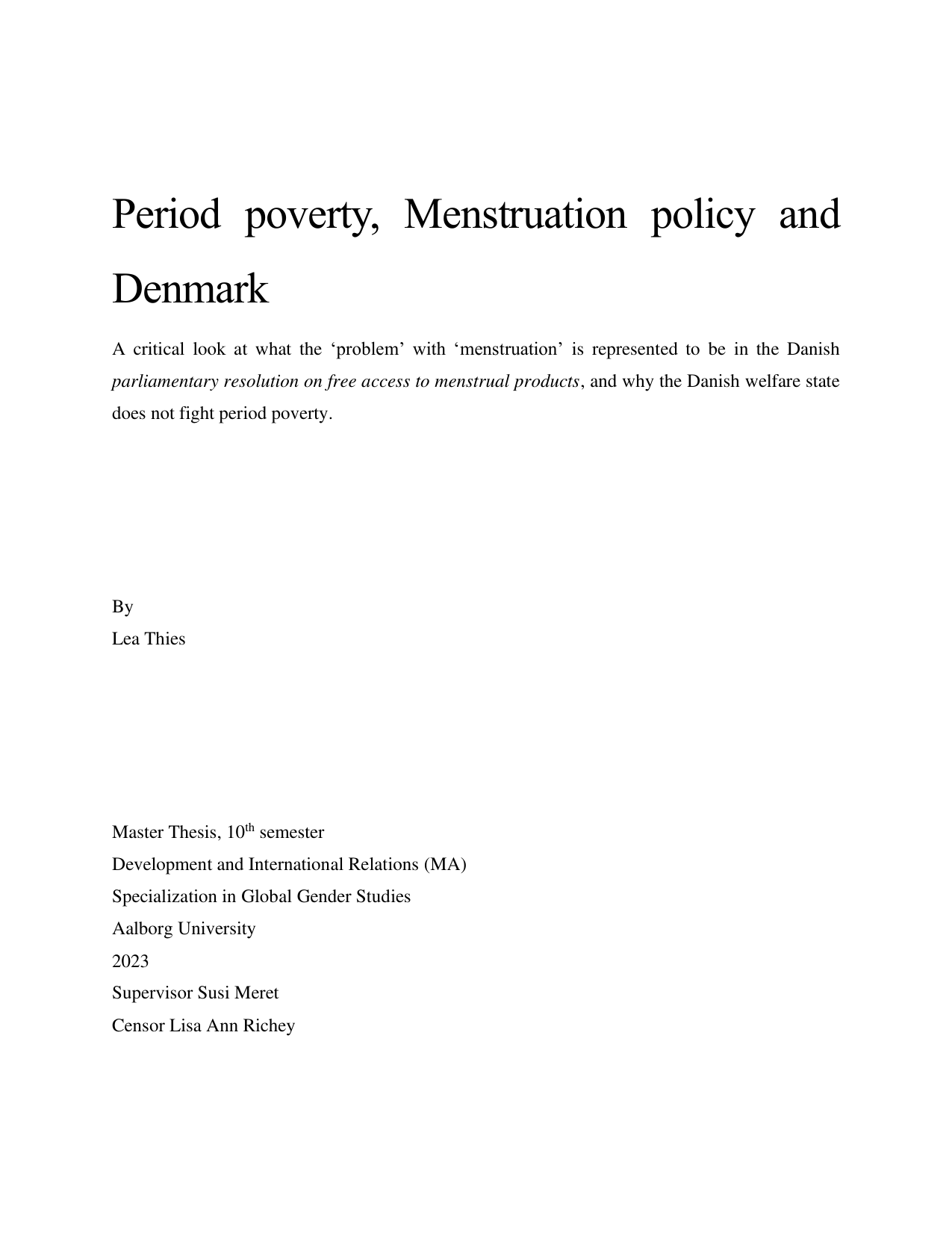
Period poverty, Menstruation policy and Denmark, A critical look at what the 'problem' with 'menstruation' is represented to be in the Danish parliamentary resolution on free access to menstrual products, and why the Danish welfare state does not fight period poverty.: A critical look at what the ‘problem’ with ‘menstruation’ is represented to be in the Danish parliamentary resolution on free access to menstrual products, and why the Danish welfare state does not fight period poverty.
Translated title
Period poverty, Menstruation policy and Denmark, A critical look at what the 'problem' with 'menstruation' is represented to be in the Danish parliamentary resolution on free access to menstrual products, and why the Danish welfare state does not fight period poverty.
Author
Term
4. term
Publication year
2023
Submitted on
2023-05-30
Pages
64
Abstract
Poverty effects nearly 1 in 2 people worldwide, a form of poverty is period poverty. Period poverty is the inadequate access to menstrual hygiene tools and education, washing facilities, waste management, sanitary products and more. In 2021, a Danish MP introduced the Danish parliamentary resolution on free access to menstrual products which is a policy to combat the economic burden some face by having to purchase menstrual products. This policy proposal could be seen as a welfare policy proposal which should be welcomed in a welfare state like Denmark, but the policy proposal was rejected. This paper aims to look at what the ‘problem’ with ‘menstruation’ is represented to be in the Danish parliamentary resolution on free access to menstrual products, and why the Danish welfare state would not be fighting period poverty. For this, the origin of the inclusion of menstruation as a concept in convention, conferences and directives was traced on an international and an EU level as well as the attitude towards menstruation in the case country Denmark. The theoretical background includes of gender and welfare state regimes as Denmark is a welfare state and a gender regime. The other theoretical approach, multiple stream framework, was chosen as it lends an explanation for policy change or the lack thereof which is the case in this thesis. Conducting the analysis, the “What’s the Problem Represented to be?” approach was chosen to be combined with the Multiple Stream Framework. The analysis found one of the main problem representations of menstruation to be an economic challenge with the solution being introducing a similar legislation to Scotland’s Period Products (Free Provision) (Scotland) Act 2019. The problem is however differently presented in the parliamentary debate where the main being problem represents as one of stigmatization. The problem representations come from menstruation having been such a taboo topic on all levels, international, EU and national level. It was also found that this representation of menstruation not taking all the other aspects of period poverty into account. And according to some politicians period poverty does not exist in Denmark and menstruation is an individual problem that the government should not interfere with. At the end of the thesis, I can conclude that menstruation is mainly seen as an economic challenge in the Danish policy proposal and that this representation and the way the policy proposal is modeled after the Scottish legislation does not work for Denmark amongst other things due to the difference in welfare states.
Keywords
Documents
